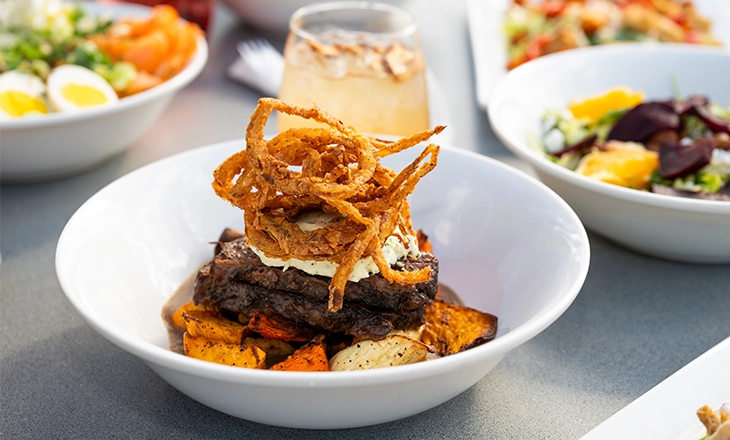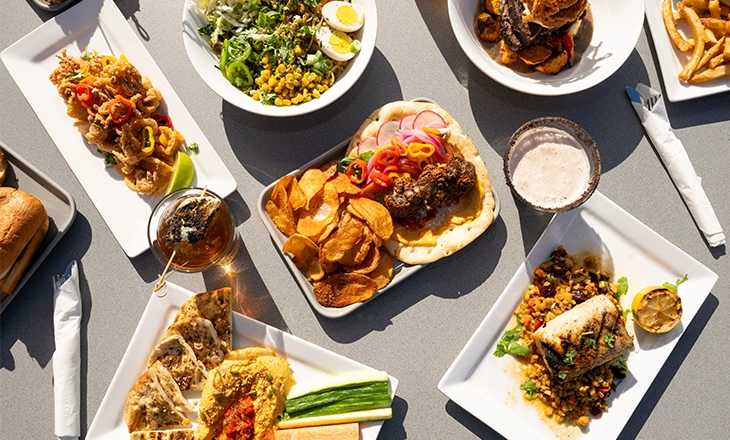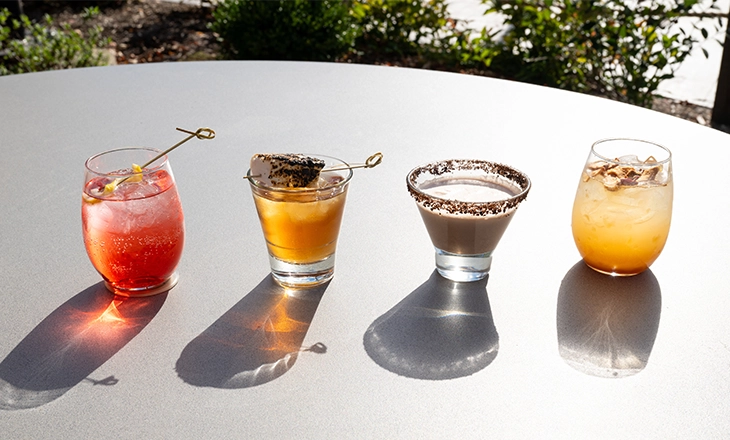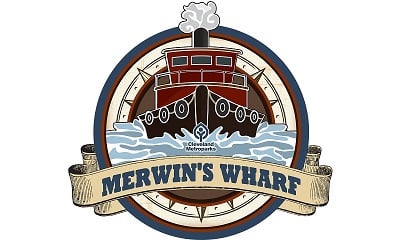
DINE ON THE RIVER
Nestled in the post-industrial site of Cleveland’s Flats neighborhood, Merwin’s Wharf connects guests to urban greenspace while enjoying fresh, seasonal and locally-sourced menu items. Guests can also enjoy reservable day-use boat slips on a first-come, first-serve basis in nearby Heritage and Rivergate parks. Check out the latest events and specials below.
-
Lakefront Reservation
1785 Merwin Avenue
Cleveland, OH 44113 - Driving Directions
-
Tues - Thurs 11AM - 8PM, Fri - Sat 11AM - 9PM, Sun 11AM - 8PM
- 216.664.5696
-
Outdoor | Indoor
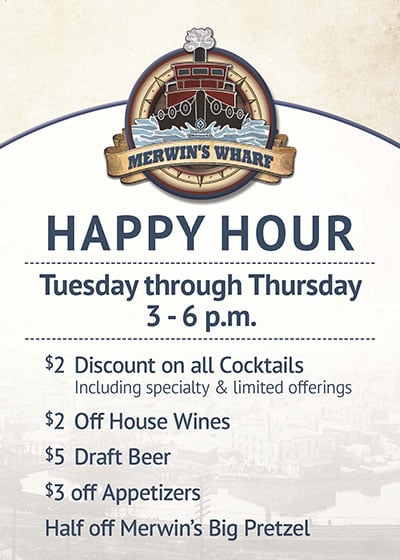
-
Noble H. Merwin arrived in Cleveland around 1812. Like most of his neighbors, he was a New Englander, born in Milford, Connecticut in 1782. He made the long trek to Cleveland with his young family and became one of the first merchants and wholesale dealers in the primitive town.
When the early residents of Cleveland looked at what was then called “the Ox-Bow” they saw opportunities. The natural beauty of this flat area created by the looping river was lost on a generation determined to create commerce and trade out of the “swamp, mire and bulrushes” and “unproductive wasteland.”
Noble Merwin first purchased a log tavern at the intersection of Superior and Vinyard. He then turned his attention to the flat meadows lying within the ox-bow of the river, buying property along the northwest side of the peninsula. He had hopes of providing supplies for the Army, American Fur Company and perhaps, even the American Indians living along the shores of the Great Lakes.
He built a packing and slaughterhouse for droves of cattle and hogs that were brought to the city, as well as a warehouse at the east end of the street that bears his name. He constructed small lake vessels, including the schooner Minerva, the first vessel registered at Washington from Cuyahoga County.
Merwin did all this before the construction of the Ohio and Erie Canal that would make his land investments so profitable. According to some memoirs, Noble Merwin was part of the Cleveland delegation that headed down to Akron to meet the officials traveling along the newly opened Ohio and Erie Canal and escorted them to Cleveland for the opening ceremonies in 1827.
We want to hear about your dining experience. Please submit your feedback.
Rental Information
-
Fee: $150/hr
-
Best for: Birthday Parties & Showers, Corporate Events & Meetings
Amenities: Campfire Ring, Fireplace, Parking, Restrooms
Activities: Dining - Book
Activities
Amenities
-
Campfire Ring
-
Fireplace
-
Parking
-
Restrooms
Nearby Attractions
-
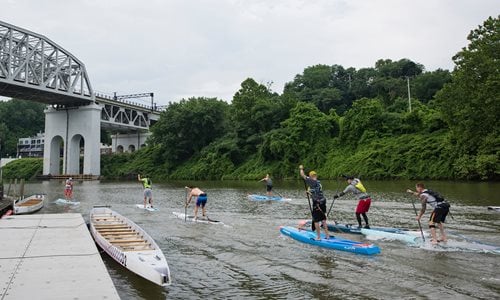
Merwin's Wharf Paddling Access
CAUTION: Large freighters and heavy boat traffic at this location. -
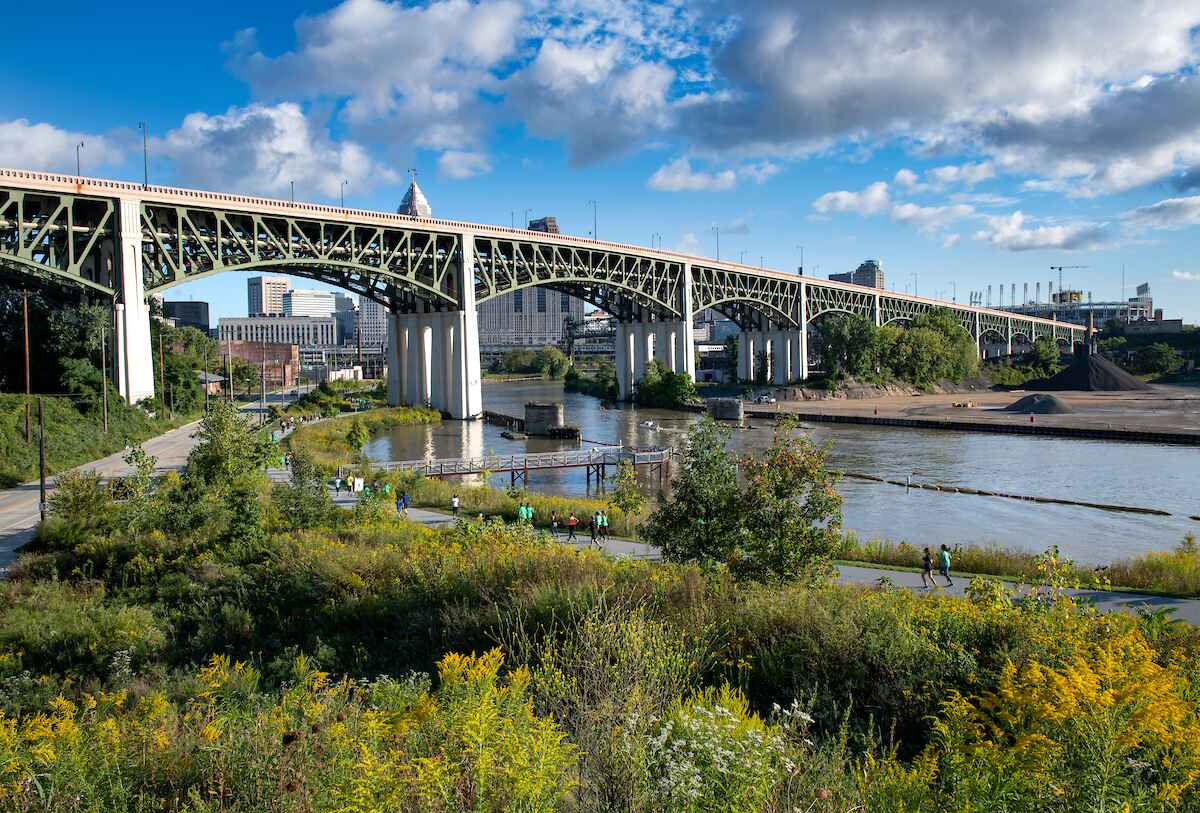
Rivergate Park
Adjacent to Merwin's Wharf, enjoy the views along the Cuyahoga river at Rivergate Park. Have lunch on Merwin's patio and enjoy the new day-use boat slips for recreational boaters! Slips are reservable... -
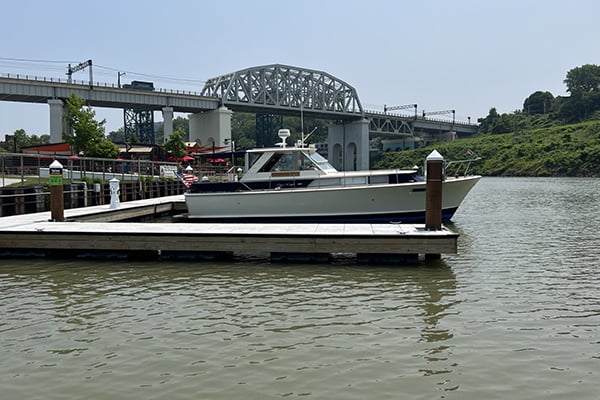
Rivergate Park Transient Dock
Guests can enjoy 6 new day-use boat slips in Rivergate Park offering boaters unique access to Cleveland's riverfront trails, restaurants and more. The new boat slips are the only publicly accessible b...
Programs & Events
-

Nature on Tap: Extremophiles
Get ready to venture to the vastest places on Earth. Join a naturalist for an evening at Merwin’s Wharf, where we will go to some of the most extreme environments on the planet and...

